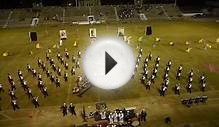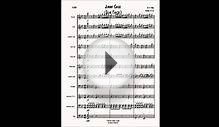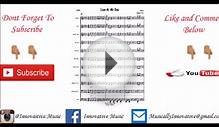
Marching Band Music publishers
When I talk to composers who are still in college, a lot of them are of the belief that the big goal for a composer is to become published. “How did you get your first piece published?” they want to know. “I want to publish my new percussion ensemble piece. Where should I send it?” Oh man, what a kettle-o-fish this is. I tend to be overly opinionated when I speak to student composers about anything, and I’m worse about this topic than just about any other. Below is what I tell them. This post is going to be mega-wonky, and if you’re not interested in the business side of being a composer (or you think “business” and “composer” should never go in the same sentence together), you should skip this entry.
When I was really young — high school age — I thought it would be amazing to be published. My dream was to be published by, because that was ‘s publisher, and Barber was my favorite composer. (They currently publish — my teacher at Juilliard — Bright Sheng, Tan Dun (one of my favorite composers), David Lang, and their various divisions handle Eric Whitacre, the young composer Nico Muhly… the list goes on and on.) I figured that if I could be published by Schirmer some day, their stamp of legitimacy would mean that I was a Real Composer, and people would climb over each other to play my music! It was a perfect plan!
I never actually submitted any material to Schirmer, though, or to any other publisher. When I was 19, I got a commission to write for the Cleveland Orchestra Youth Orchestra, and I learned that if I joined a performance rights organization like ASCAP, I could collect performance royalties for that performance. But here’s the thing… If you have a performance that is licensed by ASCAP (just about every live music performance of “classical” music is licensed — and therefore paid), the composer gets 50% of that performance royalty. Who gets the other 50%? The publisher.
I didn’t want 50% of the performance earnings go into the ether since I wasn’t published, so I registered a publishing company with ASCAP — Osti Music. (I came up with the name “Osti Music” because when I first sent music to John Corigliano, he complained that my music had way too many, or, repeated phrases. Clearly, not much has changed.) I became both a writer and publisher member of ASCAP, and I copyrighted that first orchestra piece with the Library of Congress under the publisher name Osti Music. Eventually I got an ASCAP check for the performance royalties for that premiere performance — my writer royalty check. Then, a few weeks later, I got another (equally tiny) check, for the same amount — my publisher check.
This is an important thing to remember: a publisher gets 50% of just about everything (not just performance royalties — they get half of CD royalties, half of DVD royalties, half of music rental fees, and half of all license fees, like marching band licenses), and they own the copyright. The composer does not own the copyright; the publisher does. That means the publisher controls all of the rights for the music. Yes, they give half of the earnings to the composer, but they also call the shots.
Let’s say that you write a piece that’s very personal to you — for the sake of this example, we’ll say it’s a choral piece that you wrote for a close friend. Your publisher, who owns the copyright, is contacted by disgraced beauty queen and breast-implant recipient, who, fresh from her, has decided to record an album about the evils of the homosexual lifestyle, and has requested permission to sample your choral piece in her first single. Your publisher, seeing dollar signs, agrees. You, who are so liberal that you think even straight people should have to get gay married (if nothing else because the weddings would be FABulous!!!), are horrified — but powerless, because you don’t own the copyright. If you self-published your choral piece, though, you could prevent this.
YOU MIGHT ALSO LIKE



Share this Post
Related posts
Marching Band Music video
Nathanial Kenner, Rashad Dillon, Josh Brown and Lawjahn Johnson didn t know a clip of them dancing would make it into a music…
Read MoreMarching Band Music Downloads
The University of West Georgia Marching Band - The Sound that Lights the South - is open to all UWG wind, percussion and…
Read More










